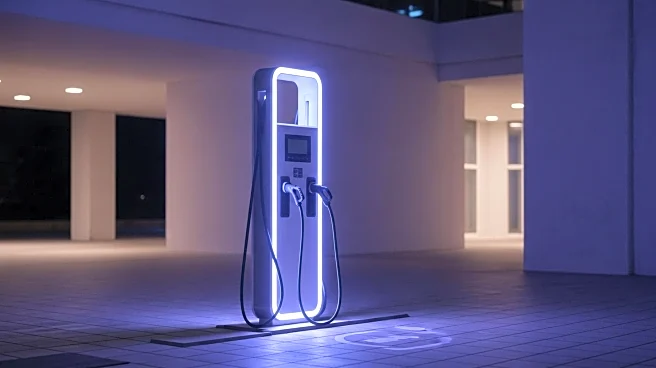What's Happening?
The federal tax credit of $7,500 for electric vehicles (EVs) is set to expire on October 1, 2025, under President Trump's administration. This change is expected to increase the real-world prices of EVs, potentially leading to a decline in sales. In August 2025, EV sales reached a record high, with 146,332 cars sold, marking an 18% increase year over year. The expiration of the tax credit, initially introduced to promote EV adoption and combat climate change, is anticipated to cause a sales dip, although experts believe it won't be drastic. The tax credit's removal is part of a broader rollback of climate policies by the Trump administration.
Why It's Important?
The expiration of the EV tax credit could significantly impact the U.S. automotive industry, particularly affecting manufacturers and consumers. Automakers may need to adjust pricing strategies or increase incentives to maintain sales momentum. The removal of the credit could also slow the transition to electric vehicles, affecting efforts to reduce carbon emissions and combat climate change. The decision reflects the administration's stance on reducing government intervention in the market, potentially leading to a shift in consumer behavior and industry dynamics.
What's Next?
Automakers may respond by lowering EV prices or offering new incentives to attract buyers. The industry could see a temporary reduction in EV options as manufacturers reassess their strategies. States with strong environmental policies might introduce their own incentives to support EV adoption. The broader implications for climate policy and the automotive market will depend on future regulatory decisions and market responses.
Beyond the Headlines
The end of the EV tax credit highlights the ongoing debate over government subsidies and their role in shaping market dynamics. The decision may influence public perception of EVs, potentially reducing the stigma associated with government-supported technologies. The shift could also prompt automakers to innovate and compete on the merits of their products, potentially leading to advancements in EV technology and affordability.









